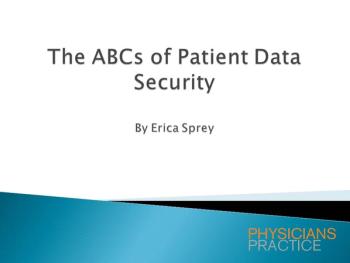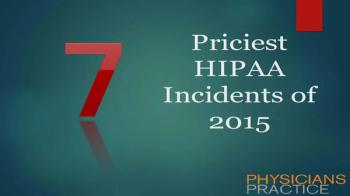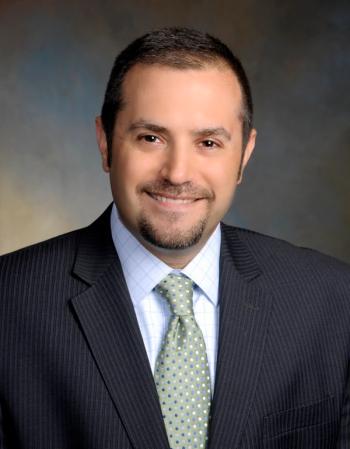
Want to avoid seeing your practice getting an audit from OCR? Here are six simple steps you can improve data security.

Want to avoid seeing your practice getting an audit from OCR? Here are six simple steps you can improve data security.

The latest guidance from the FDA in relation to cybersecurity vulnerabilities is something that physicians and patients need to know.

If your practice suffers a security breach, staff must know their part in implementing an incident response.

Training your medical staff to securely handle and protect sensitive patient data isn't as hard as you think.

A recent case indicates that practices cannot cut corners when it comes to ensuring business associates are compliant with HIPAA.

The smartphones, tablets, and laptops are valuable tools to many physicians, but they can also represent real risk in the event that they are stolen.

Once they understand the full meaning of the law, a lot of the negative connotations healthcare providers have on HIPAA can be dispelled.

Phase 2 HIPAA audits are coming up soon. Here are five tips on how they differ from Phase 1 and what you should know.

The issues of increased cyber-hacking risks and difficulty collecting from patients with high-deductible health plans are unlikely to cease in 2016. Be prepared for both.

Having a proper plan in place to dispose of computer and electronic equipment will protect your New Year’s celebrations from getting ruined by a data breach.

Part two of a two-part series where Physicians Practice looks back at the top health IT issues of the year. More practices looked to the cloud in 2015.

Recent Office for Civil Rights (OCR) settlements with pricey fines highlight the continued need for HIPAA and HITECH compliance.

Several six-figure HIPAA settlements were levied against healthcare organizations this year. Here are the top HIPAA incidents of 2015.

On Friday the 13th, a ruling against the FTC was a stroke of good luck for the rest of the healthcare industry, which is already overregulated.

Many physicians feel that useless chart documentation has grown to consume most of the patient visit, leaving little time for patient care.

Practice owners should be leery of potential financial fraud, which seems to peak at the end of the year. Here are some things to look out for.

When it comes to HIPAA breaches, entity size does not matter. What matters is the Office for Civil Rights (OCR)’s oversight and compliance.

It’s important to not cut corners when assessing the cost of a new technology and forget about its potential security threats.

Two recent articles underscore the importance of cybersecurity across all facets of a physician’s practice and what questions should be asked.

Technology tools, like Apple’s ResearchKit, present exciting opportunities for healthcare, but they must be regulated to protect personal health data.

Physicians want access to patient data on the go, but practices need to have a secure BYOD policy. Here are a few steps to protect data within the EHR.

Practices are more at risk for breaches than ever before. Here are a few steps to protect data in the EHR and elsewhere.

Having a data breach response plan on paper isn't enough. Practice staff expected to implement it must understand and be equipped to execute their tasks.

Our 2015 Technology Survey Sponsored by Kareo reveals common challenges practices face after technology implementations. Here's what they are, and how to address them.

For PHOs and super groups, one practice's misstep to put everyone at risk. Here are six potential threats to avoid and the best way to stay safe.